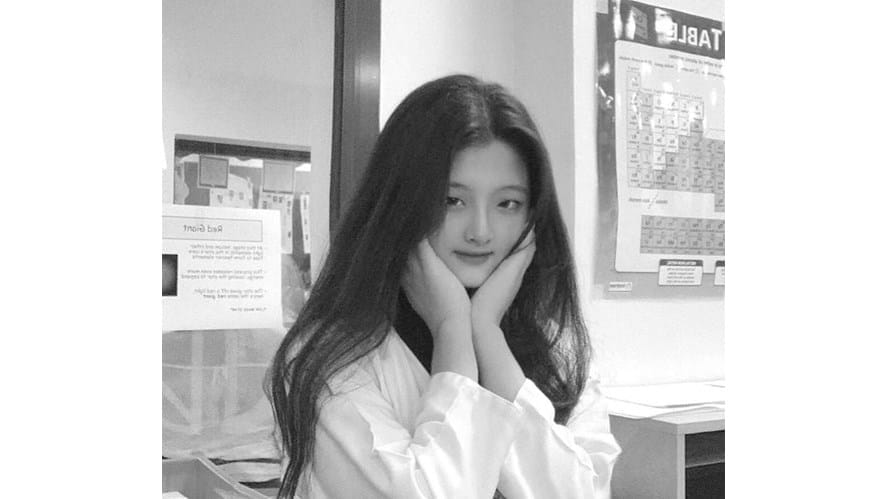- Discover more
- Parent Essentials
- News
- Physical Education
- Apply now
- Discover more
- Parent Essentials
- News
- Physical Education
- Apply now

Read below what Jieun has to say about her involvement and passions:
What really makes me motivated is definitely Quality Education. Equal educational opportunities have always interested me. Education transforms lives and is at the heart of the global citizen's mission to build peace, eradicate poverty and drive sustainable development. Since I was very young, I decided to dedicate myself to providing the same access to education. Aforementioned, more egalitarianism in education for the future generations will be key to giving the same opportunities. And what’s important is not just being inspired, but going and doing something about it.
The first action of the education project was ‘sharing’. I host a weekly debate forum with my high school students from my home country, Korea. The discussed topics come from our Theory of Knowledge (TOK) class, including the ‘glorification of soldiers’ and ‘the morality of artists’. Starting from Sweden, the International Baccalaureate Diploma Program (IBDP) is a thought-provoking curriculum that prioritises the questioning of knowledge as a whole. The idea of the forum is to connect students in South Korea through insightful discussion about relevant topics that would provide a new-found perspective on modern-day issues. I recognised the importance of having this discussion during our youth and wanted to share this valuable session with Korean high school students. The first Philosophy debate Zoom forum was held on March 29, with more than 300 attendees.
Based on the knowledge gained from experience in Model United Nations Debate Forum, I am working as a chair of our school’s MUN club. Our club consists of students from Year 7 to 13, who are developing an understanding of the MUN procedures and debate skills within our programme. This will bring about a change in our generation’s education, especially considering that the majority of members start to develop thoughts about SDGs from a very young age. MUN has mostly been for privileged students because of its complex procedure and the need for travel to attend conferences, and it shouldn’t be like that. Our teams help beginners to participate in this universal experience. Although we have not yet addressed all the barriers that students face when trying to join MUN, accessibility is something our club actively strives towards. We provide a series of videos explaining the MUN procedure in a simplified way, making the content easily learnable. Personally, I believe that MUN should be available to every student. It’s an opportunity to not only learn new ideas and grow as a person, but also to develop yourself in ways outside of the classroom.
The Economics Talk encapsulates the growing necessity for youth to be aware and knowledgeable of the fundamental component of society: Economics. It is a monthly conference that brings together talented and influential speakers and future Economists. The themes cover the IB Economics and Business curriculum, creating a link between academic theory learned in class and real-life application through presentations by industry experts. Our mission is to add value to students’ Business and Economics knowledge whilst contributing to their prospective careers in those fields. The first Guest Speaker was Mr. Chan, who is currently head of research and macroeconomics at ADIA (Abu Dhabi Investment Authority). His responsibilities include covering markets across the world as well as conducting investment analysis in the US, EU, and beyond. Our second Guest is Raidan ALSAQQAF. He is an Economist at the United Nations of Office in Abu Dhabi, he has over 18 years of work experience in various capacities, including with the UN-Secretariat, UN Women, UNDP, International Labour Organization, and the U.S. Agency for International Development.
The fourth education project is the Inclusivity Club. This is a new initiative at BIS Abu Dhabi, that aims to celebrate difference and empowers us to recognise that each one of us is unique. Within the club, we want to take concrete steps that address issues like race and racism. We want to address the impact on many people’s lives, and society’s responsibility to become more than just ‘colour blind’. During our meetings, we discuss diverse books, make toolkits for diversity education, and are currently looking into what else we can do within PSME and school to bring about real change.
All these involvements center around my first and foremost mission to youth education.
Jieun, Year 12